10 Pieces of Relationship Building Advice from Alumni Who Know How to Stay Connected
This past fall, we heard from hundreds of alumni navigating burnout, languishing, career trajectories, and just life during this pandemic. You all told us something similar: we need specific, tactical advice.
We’re starting a new monthly column to help. We’ll address your most confusing career conundrums. And we’ve asked some of the best advice-givers we know, our Alumni Career Advisers, to help. Each month, we’ll pose one question, gather their wisdom, and share it concisely with you.
January is National Mentoring Month and we couldn’t imagine a better place to start this column than by focusing on relationship building. Staying connected to colleagues and mentors has always been tough. Whether you struggle in knowing how often to reach out, what kinds of updates to share, or when to ask for help, it can be challenging to wade through all that second-guessing yourself and re-establish the genuine connection you shared.
To learn how other successful connectors sustain important relationships in their lives, we posed this question: What is one best practice that you’ve incorporated into your work routine for building relationships with mentors and colleagues?
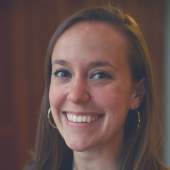
Mo Earley (’13), a policy adviser for the federal government, knows the importance of being intentional with your relationship building. The best practice she’s incorporated is “proactively making time for non-work and mentorship conversations. It can feel awkward, especially if this isn’t already part of the team culture or if you are working virtually, to ask for regular check-ins with your manager or teammates.” But she has found that “even 20 minutes every few weeks where I get to ask for feedback, do a pulse check, and get to know my teammates as people improves my working relationships and my own self-awareness.” Take her advice: “don’t be afraid to ask for that time – but it definitely is your responsibility to make good use of that time, so come prepared!”
Intentionality is also key for Jeffery Paul Hogg (‘79), a radiologist and professor at the West Virginia University School of Medicine. “Be intentional. Meet the new workers and learners in your midst. Make a point to let them know you are interested in their success and available to answer questions.” He sees this kind of relationship building as a direct way to practice the Wake Forest spirit of Pro Humanitate. “If you have knowledge and skills, offer to mentor. What you gain in those important intangible rewards – like being part of a supportive workplace community, like modeling the change you hope to see in the world, like extending a hand down to those lower on the ladder – will likely far exceed the effort you have to invest and will return to you long lasting positive relationships”. At the end of the day, that’s “the real currency that matters.”
University School of Medicine. “Be intentional. Meet the new workers and learners in your midst. Make a point to let them know you are interested in their success and available to answer questions.” He sees this kind of relationship building as a direct way to practice the Wake Forest spirit of Pro Humanitate. “If you have knowledge and skills, offer to mentor. What you gain in those important intangible rewards – like being part of a supportive workplace community, like modeling the change you hope to see in the world, like extending a hand down to those lower on the ladder – will likely far exceed the effort you have to invest and will return to you long lasting positive relationships”. At the end of the day, that’s “the real currency that matters.”
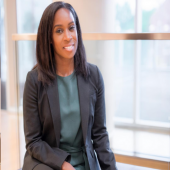 Cassaundra Young (’07), a quality improvement director working in the healthcare industry, builds on that idea of intentionality, but with added diligence. “As in any relationship, consistency is key! It takes time and intention to develop strong relationships and this is also the case professionally.” She speaks with her mentor monthly, at a minimum, and makes a point to have regular 1:1s with colleagues, especially at times when she doesn’t need anything from them. “Imagine how frustrating it is when someone only comes to you when they need something! It doesn’t feel good, so why would we do this at work? Consistency in outreach and communications ensures that my professional relationships do not feel forced and that they continue to strengthen over time.”
Cassaundra Young (’07), a quality improvement director working in the healthcare industry, builds on that idea of intentionality, but with added diligence. “As in any relationship, consistency is key! It takes time and intention to develop strong relationships and this is also the case professionally.” She speaks with her mentor monthly, at a minimum, and makes a point to have regular 1:1s with colleagues, especially at times when she doesn’t need anything from them. “Imagine how frustrating it is when someone only comes to you when they need something! It doesn’t feel good, so why would we do this at work? Consistency in outreach and communications ensures that my professional relationships do not feel forced and that they continue to strengthen over time.”
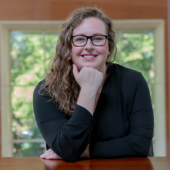
Mallory Allred (’16, MA ’21) values the importance of intentionality in both relationships and conversations. “For me, that looks like asking for advice and feedback and making sure I set aside time each month for mentoring relationships.
Allegra Brochin (’19), a communications expert working in the luxury fashion industry, understands how building relationships leads to personal growth – and how failing to create diverse networks can limit your options. She believes that these types of relationships are especially important to seek out because it can be very easy to get stuck in a workplace routine. “Speaking to the same types of people on your team, working on the same projects you always have been assigned to, and not making an effort to get to know your colleagues outside of work all limit short- and long-term growth opportunities.”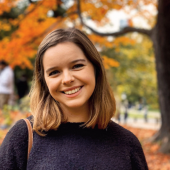
Allegra offers, “The best way to build a relationship with your mentor or any other colleague — new or old — is by branching out from your daily work routine. In practice, some ways to do this are by showing genuine interest in learning something from others, and not being afraid to try new things and put yourself out there. You can try to do so by: 1) grabbing a coffee or lunch with a colleague you’ve never spoken to, 2) striking up a conversation with a colleague you already know — but making an effort to talk about their interests outside of work, or 3) volunteering to work on a project that you wouldn’t normally work on — to gain insight into a different part of your team or company, and to learn from an area you aren’t necessarily familiar with.” Interacting with those outside of your typical work sphere is key. These relationships create trust that can be leveraged into newer or bigger responsibilities, resulting in both personal and professional growth!
 Working in business development in the venture capital space, Taylor Anne Adams (’14), knows the importance of keeping track of your connections. “Every time I meet with someone, I record my interaction and type in a few notes into a personal database. This database, called Dex (google it and use it – it’s wonderful!), allows you to set reminders to follow up with people on specific dates to make sure you are keeping your relationships strong.”
Working in business development in the venture capital space, Taylor Anne Adams (’14), knows the importance of keeping track of your connections. “Every time I meet with someone, I record my interaction and type in a few notes into a personal database. This database, called Dex (google it and use it – it’s wonderful!), allows you to set reminders to follow up with people on specific dates to make sure you are keeping your relationships strong.”
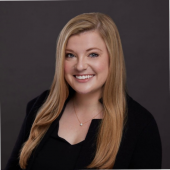
In her role as an executive recruiter in the consulting industry, Katie Hooper (‘14) sees feedback as a way to stay connected with mentors and colleagues. “Think of feedback as a gift and be continuously open to learning.” When someone gives you feedback, it’s important to “go out of your way to thank them and tell them how you’ve applied it and the subsequent result.” This practice not only helps you gain credibility with your team, but also helps solidify those mentoring relationships.
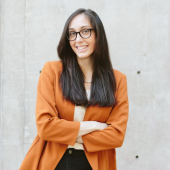 Cary Lambert (’13), a strategy and brand manager in esports, acknowledges the difficulty in connecting during the increased remote workspace created by the COVID-19 pandemic. “I’m still trying to think about what a solution is for this in a post-Covid remote world, but for those of us who have returned to the office, my advice is to always reach out to those colleagues who you’d love to have a closer relationship with and just ask them if you can buy them a coffee.” The pressure is low because “the worst thing that will happen is that they’ll say they’re too busy and either suggest an alternative time or request you get back to them at a later date.” In her experience, if this person is someone worth having as a mentor, “they’ll be more than happy to sit down with you and begin forming that relationship. You just have to get the courage to ask!”
Cary Lambert (’13), a strategy and brand manager in esports, acknowledges the difficulty in connecting during the increased remote workspace created by the COVID-19 pandemic. “I’m still trying to think about what a solution is for this in a post-Covid remote world, but for those of us who have returned to the office, my advice is to always reach out to those colleagues who you’d love to have a closer relationship with and just ask them if you can buy them a coffee.” The pressure is low because “the worst thing that will happen is that they’ll say they’re too busy and either suggest an alternative time or request you get back to them at a later date.” In her experience, if this person is someone worth having as a mentor, “they’ll be more than happy to sit down with you and begin forming that relationship. You just have to get the courage to ask!”
Peter Siderovski (’14), a management consultant in the transportation industry, values the ease of keeping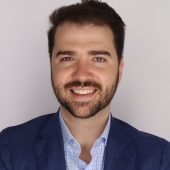 things casual. “I’m a big fan of morning coffee chats, reaching out to individuals especially when I’m hoping to reconnect with them and hear about what work they’ve been up to recently.” This practice creates an opportunity for colleagues to share their recent accomplishments and allows you to learn by listening. “It may be counter-intuitive but I have found that listening builds relationships more effectively than talking – learning about others more than sharing about yourself.”
things casual. “I’m a big fan of morning coffee chats, reaching out to individuals especially when I’m hoping to reconnect with them and hear about what work they’ve been up to recently.” This practice creates an opportunity for colleagues to share their recent accomplishments and allows you to learn by listening. “It may be counter-intuitive but I have found that listening builds relationships more effectively than talking – learning about others more than sharing about yourself.”
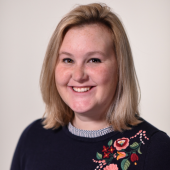 Building upon the importance of listening well, Maggie Sandy (’16), a nonprofit event and marketing manager, believes in asking genuine questions. “It has taken a lot for me to understand that asking questions isn’t a sign of weakness or that you are insufficient. Asking genuine questions about situations you face, problems you are encountering, or just about anything are the easiest ways to interact with colleagues and mentors. When you ask genuine questions, you show how dedicated you are to learning and growing as a person and as a professional!”
Building upon the importance of listening well, Maggie Sandy (’16), a nonprofit event and marketing manager, believes in asking genuine questions. “It has taken a lot for me to understand that asking questions isn’t a sign of weakness or that you are insufficient. Asking genuine questions about situations you face, problems you are encountering, or just about anything are the easiest ways to interact with colleagues and mentors. When you ask genuine questions, you show how dedicated you are to learning and growing as a person and as a professional!”
Kristin Winkle Beck (‘97), a former VP in financial services turned nonprofit executive, knows the value of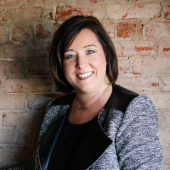 maintaining your network during career transitions. “As I have transitioned into a new industry over the last couple of years, building and maintaining relationships with my new colleagues has been critical to my learning and success. Each week I try to have at least one informal coffee or lunch appointment on my calendar to check in with business partners and new industry peers.” To expedite the scheduling process, Kristin proposes a couple of times right off the bat. “I have found that I really look forward to these appointments on my calendar and it helps to boost my energy for that day and week.”
maintaining your network during career transitions. “As I have transitioned into a new industry over the last couple of years, building and maintaining relationships with my new colleagues has been critical to my learning and success. Each week I try to have at least one informal coffee or lunch appointment on my calendar to check in with business partners and new industry peers.” To expedite the scheduling process, Kristin proposes a couple of times right off the bat. “I have found that I really look forward to these appointments on my calendar and it helps to boost my energy for that day and week.”
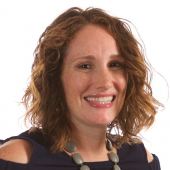
Valuing everyone’s precious time is a priority for Lindsey von Thron (’06), a media and production leader. Within a standing weekly call, she schedules 10 minutes for catching up and checking in on the team. “It helps give everyone a chance to connect without adding additional meetings in a time of zoom burnout. If it feels like there’s further connection that needs to be facilitated, we will coordinate accordingly based on everyone’s workload and COVID precautions.”
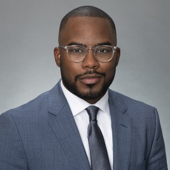
To foster meaningful connections, Kevin Michael Smith (‘12), a corporate M&A attorney, relies on expressions of gratitude. “It’s important to let colleagues know that you value the energy that they bring to collaboration and to express appreciation to mentors for the time that they’ve invested in you.”
